#and at the same time i am subconsciously labelling men as evil
Explore tagged Tumblr posts
Text
I think this post does a good job at summarizing all the inherent issues with the Gerudo as they have been depicted, and how we presently view them now in the Era of the Wilds.
In my opinion, to hand wave certain aspects of what we have been presented in lore, that maybe they do not require or deserve a deeper look because it is a game for children, is a dismissive argument that is more often than not used to shut down legitimate issues and to stave off people who want to make surface level arguments. As an example, I was a child when I played Ocarina of Time, and, having been the victim of Western propaganda that sought to label people that looked like me and held my beliefs as universal terrorists and a threat to Western democracy and modern values, I have always held a much softer view about Ganondorf and the Gerudo. This is not a unique experience. I know this is not what you meant of course, but I am pointing out the people who want to shut down these sorts of discussions with the argument of "it's a children's game so you're not supposed to look that deeply into it". I was a child and I wasn't looking deeply into it and my first impression really was wondering if I was being told the truth. The fact that they laid it on real thick about how bad and evil and vile Ganondorf was made me more convinced that I was witnessing a story based heavily in propaganda, that Ganondorf and the Gerudo were being presented as antagonistic and hostile because they were easy to scapegoat in the grand scheme that is Hyrule. If the themes are blatant enough for a child to see them, then what of the children that are accepting this as something to be normalized? It is essentially reinforcing an image of what a certain look and a certain region of the world bring is it not? People who want to argue that Nintendo is a Japanese company and thus do not operate on "western" values seem to have no knowledge of the notable moments that Nintendo did recognize they were overstepping certain boundaries. The Gerudo emblem, originally a crescent moon and star which was not only found in Gerudo territory, but in all the places Ganondorf had "cursed", bore this symbol, and the Fire Temple which used Muslim prayers and Quran verses in its track were removed. The famous story is that Muslims made a complaint but this is actually not true; Nintendo themselves realized this oversight and corrected it in later versions of OoT. These are not "western" values that seek to make things "politically correct"; these were things that they recognized may be too blatant in nature and had them removed. It is probably the same reason why they removed the cross and churches from Hyrule. That being said, it also makes it clear where they drew inspiration from when designing a human form for their titular villain, and how his antagonism would be contextualized. After all, it was and still is a popular trope, to characterize the desert region as a place of mystery and exoticism, inhabited by people that practice strange beliefs, that have beautiful women that remain inaccessible to the average man outside the region, and that have men whose intentions are more often than not based in greed and selfishness and run counter to what we view as modernity.
The thing about simple storytelling is that it draws on the assumption that there are certain things and associations we make from what we already know, not only in terms of Zelda lore but also in terms of what we, consciously or subconsciously, see when viewing the Gerudo. It is a common belief amongst the wider fanbase, even with the context of the Era of the Wilds, to see the Gerudo in a more barbaric light, defanged or otherwise. They are girlbosses who will kidnap and imprison men, who will don armor and fight ferociously, who will show off their skin and be alluring while also biting back like a snake, who will pillage and steal if needed, who will rape and defile to populate their people. The lore gently supports this view with suggestions such as seeing the Gerudo supporting Ganondorf's assault on Hyrule, the suggestion that they worship him like a god, the suggestion that to win favor they had to associate themselves with Hyrule and repent for Ganondorf, and that they will pick up arms, fight, and imprison those that dare to trespass and flout their laws because how dare women have a spine, and that they age faster than Hylians do. The entire point of all this is that I cannot, in good faith, really see that the omission of the Gerudo was done with the thought with the intention that they were spared. And, to be honest, the rest of the fandom did not see it that way either; most people immediately ran away with this omission as genocide, and the deluge of theories that came up afterwards where the Gerudo were murdered ruthlessly or imprisoned as sex slaves in response to Ganondorf's treason speak to the fact. The Gerudo were crafted with this subtext of exoticism and violence, that they invite overt sexuality and violence and receive it in turn, and the way the majority of the fandom have chosen to interpret the Gerudo shows this. The more eye opening part is that a lot of these interpretations are not being done in the name of sympathizing with the Gerudo, but in a sense that "they had it coming". There are so many other races in Hyrule, but I rarely see this amount of violence attributed to any race in the way I see it attributed to the Gerudo.
The thing that fascinates me about the Wilds era is that it certainly presented a little dilemna for Nintendo's lore thus far, because up until this point the Gerudo were always framed as either a reclusive or antagonistic race with the one or two occasional Gerudo that supported Link (ehem Nabooru). Even in FSA, the Gerudo alliance with Hyrule is lip service at best; they are more or less reclusive and running their lands as they wish, and do not seem to associate with Hyrule much, if at all. It makes sense, since, as you've mentioned, Ganondorf is rather proud of his Gerudo heritage, and the Gerudo in turn have hardly disagreed with his rule, and have been shown to be ready to disown him should he break their laws (again, in FSA), so they are also not allowing themselves to be essentially steamrolled by their king just because he's their special baby boy. However, how does one take the people who are fairly supportive of their king, the villain, and ally them with Hyrule in opposition to their king? I think you don't, because what we got was an awful job in my opinion. I am glad you brought up how Nabooru is essentially the Hyrulean fantasy of what a good Gerudo should be, because that just explains the Wilds era Gerudo; they are the Hyrulean fantasy of what the Gerudo should be. I am still very fascinated by how subdued the Sage of Lightning sounded when speaking about Ganondorf. You would think, that him attacking "the last free Gerudo villages" and turning on his own people would illicit more of a reaction, but it didn't; she just sounded *disappointed*. The logical thing, following the Molduga attack, would have been having the Gerudo support Ganondorf's ascension to status as Demon King, and the murals in the first TotK trailer we ever got seemed to support this, but then they dropped it because well...how does this turn into "the Gerudo support Hyrule now! They are our allies!" I suppose they could have gone the Nabooru route and shown a faction of Gerudo that chose to oppose Ganondorf but I guess that's too much effort. The Hyrulean fantasy, on the other hand, would be to have them all reject their king outright and support the Hyrulean king instead, because they were *wrong* and have found the light! Their obsession with marriage and bending over backwards to please specifically Hylian men (why don't they date Rito, or Goron, or Zora people?) while simultaneously being hostile to them when it comes to their laws, to the point that Zelda's champion has to flout the laws instead of just informing them of who he is (and still getting the cold shoulder for being allowed in) just tells me that there is still the intent to make them appear more hostile and antagonistic than other tribes, just toned down enough to make them suitable allies.
Anyways sorry for my rambling. I just think Nintendo, when it comes to the Gerudo, were cognizant of their semi-antagonistic status and didn't really want to rid them of their "exotic" nature so they sort of toed the line where they can be suitable allies but ultimately still antagonistic when needed. They did it pretty blatantly in TotK, just to remind us that the Gerudo were once supporters of the "man with the evil eyes", but then to make them allies they had Ganondorf attack his own people because he's just Like That...even though he is so blantantly proud of being Gerudo. Okay I'm done.
THE GERUDO POST
(aka an attempt at a critique of how gerudos were handled in BotW and before)
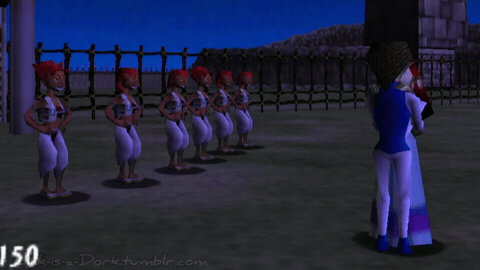
Oh no. TOTK being right around the corner, it might finally be time for the Gerudo Post.
(aka half of the reason why I made a Zelda sideblog in the first place)
So I want to preface all of this by saying that, as you could probably tell already, I’ve always adored the gerudos. They have fascinated my small child brain when I was 7; then the obsession made its comeback when I was 14, and now, here we are, almost 28, and I’m still thinking about the gerudos. I think they might be among my favorite fictional cultures for their potential and their understated storyline. I guess growing up in a very Arabic neighborhood, coupled with being bi-culturally latinx (?? does Brazil count?? you tell me), also always made them feel like home to me –especially when I was very young and there was not a lot of cool female representation flying around that managed to involve fiercely independent PoC women, flaws and teeth included.
This whole weird-essay-thing tries to do two things. First: analyze the place gerudos have occupied in the series, their initial problematisms and their subtextual narrative arc during the Myth Era coupled with their relationship to Ganondorf. Second: tiptoe to Breath of the Wild and poke it with a stick to see what happens –and in doing that, explain why I believe a lot of their characterization was defanged in service of smoothing their past with the hylians instead of deepening the culture on its own terms, and why I’m a little apprehensive about what that might mean for TotK even though I adore seeing the best girls at it again.
Those are the uhh terms of service??
And now, we must go back to 1998.
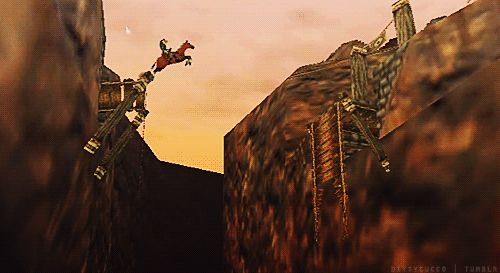
OCARINA OF TIME ERA
There’s so many things about the gerudos that are noteworthy and rich, and they’ve made for a complex piece of Zelda lore ever since their introduction –and when I say complex, I don’t 100% mean it as praise. The very racially charged decisions made about their inclusion have been discussed at length by the fandom, especially when it comes to orientalist and Islamophobic tropes being deployed pretty thoughtlessly in Ocarina of Time (their sigil being literally a crescent moon and star originally, the parallels are pretty obviously there).
We’re talking about a band of amazon-like, big-nosed brown women from the desert ruled by a single Scary Evil Man born once every hundred years hellbent on conquering Hyrule who they apparently worship like a god, characterized primarily as thieves, decked in jewelry and orientalist-inspired harem/belly-dancing clothing, hostile to the white good guys of Hyrule (especially men), unblessed by the Goddesses and so deprived of elongated ears (this is true for OoT –we’ll come back to that), also known as a demon tribe with their deity straight-out described as evil-looking by Navi (on my way to cancel you on twitter Navi you watch out), and secretly led by evil twin witches who can turn into a single seductress and, as two mothers, raised their Scary Evil Guy king who happens to basically be the devil.
In so few words, gerudos are the future that liberals want.

It’s worth notice, also, that Ganondorf’s characterization in this game is… kind of relentlessly uncomfortable to play through, especially before the 7 year skip. The utter assumption of depraved and evil intents from every character surrounded by dialogue that does little to hide its biases in spite of having generally very little proof to back them up –even though, in the game’s context, every character is correct to call his eyes evil and the darkness of his skin a moral judgment in on itself. The scene where Zelda demands that we believe her conclusion that the sole and only brown guy in the entire kingdom is evil and will do harm, and the game straight out refuses to progress until we concede that her dreams are prophetic and that this man must be stopped at any cost even though she has no more proof than her discomfort… hits different on replay.
I’m restating all of this not to pretend I’m making a novel and thought-provoking point, but to bounce back on a tumblr post I saw a while back (that I can’t find anymore!! I’ll link it if I find it again) –and so express what it is that gripped me with the gerudos in spite of their pretty damning depiction… and actually maybe thanks to it.
There’s a surprising amount of texture to Ocarina of Time’s worldbuilding that exists folded within the things introduced and left hanging, or in its subtext –and whether on purpose or not, I believe it is why people keep coming back to this iteration of Hyrule.
What was that about the king of Hyrule unifying a war-torn country? Why did the gerudos break the bridge connecting them to the rest of the kingdom during the 7 year timeskip while still worshiping Ganondorf, and why are the carpenters trying to rebuild it against their apparent wishes? What was that about gerudos imprisoning hylian men trying to force entry into their lands? What was that about the secret death torture chambers right next to the Royal Family’s tomb and connected to the race of people who were, apparently, born to serve them?
Nothing? Oh okay… okay… okay….
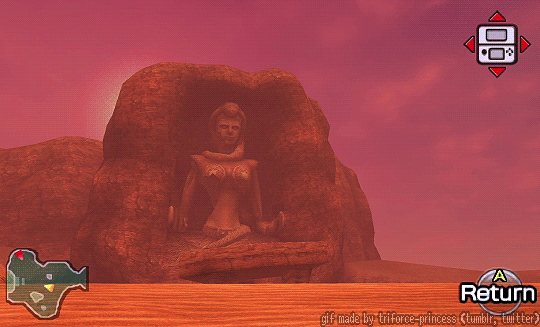
The same can be said about this strange depiction of this hostile tribe, consistently described as wicked yet suddenly friendly once you prove you deserve their respect once you... defeat them, so you now have joined them? Ocarina of Time isn’t very consistent when it comes to characterizing them as their occupation (thieves) or as a proper culture, with a king and a strange system of rulership that seem to involve at least 5 people: Ganondorf, the Twinrova, Nabooru and the unnamed random woman who decides you’re now part of the gerudos because you slashed enough of them with your sword and hookshot, which, uhh ok.
They’re but a ragtag and negligible group when discussed next to gorons and zoras and hylians, but they also clearly have their own religion and at least a 400-hundred years old history (probably far longer than this) and hints of a written language of their own. I’m not sure the game itself knows what it wants them to be, beyond: intimidating and hot and cool, but also wicked and, because of Ganondorf and the way you barge in their forbidden fortress (heh) with the explicit intent to dismantle their king, in apparent need to be saved from themselves.
Speaking of rulership and the Spirit Temple, let’s have a quick tangent about Nabooru: I always found her characterization when meeting with Child Link pretty strange. I refuse to mention the promised reward, which feeds into everything orientalist mentioned above, but I always found her moral compass so extremely convoluted for someone coming from gerudo culture. Nabooru says that, despite being a cool thief herself, she resents Ganondorf for killing people as well as stealing from women and children. Stealing... from women. Nabooru. Why are you this pressed that he steals from women!!! This feels so out of place, that the only girl of that hostile culture that betrays her king and befriends you, is the one that upholds moral values that only a hylian could possibly hold.
Either way: the strange unquestioned contempt of the game for them as a culture, mixed with the occasional bouts of heart, friendliness and badassery, makes it hard not to consider their depiction as pretty biased in favor of the hylians finding them at once exotic, scary and exciting, and could hide a more complex reality you might only get one side of –especially when you know there were originally plans for Ganondorf’s character to be more gray and motivated than what the campy final version ended up being. To be blunt: even in the context of a game for children, and maybe because of that fact, it all reads like a reductionist and imperialist/colonialist reading of a more complex situation.
This might seem like A Lot coming from a game where the actual game writing can be this overall flimsy and simplistic due to the standards of the time (it’s rough, it's so rough). But I would have never dwelt on that thought about a little children’s game if not for the mainline entries that came soon after, because... ooo boy.
The sense you’re not getting the whole story was certainly not helped by the introduction of Wind Waker Ganondorf, and the chilling emptiness of Gerudo Desert in Twilight Princess.
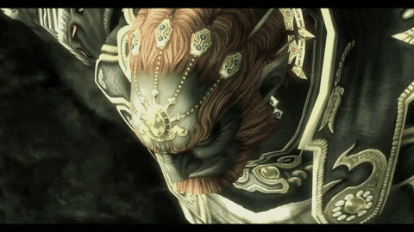
AFTER THE TIMELINE SPLIT
(I’m skipping Majora’s Mask, not because I dislike them in the game or think they’re not worth talking about, but because it’s a parallel universe and they’re never even called gerudos and their reality seems extremely different from their sisters in Hyrule so I think it’s okay to call them tangential and not dive too deep in this particular depiction)
Here’s something I want to highlight about gerudos and how they were characterized before BotW came along: their absence. Not only their physical absence, the lack of any gerudo character that calls themselves gerudo, but their absence from the text itself.
It’s not that Wind Waker and Twilight Princess retroactively scratch them off existence: we can clearly see Nabooru’s stained glass art in WW as well as recognize them being mentioned in Ganondorf’s final boss soliloquy, and WELL there’s quite a lot to say about their imprint over the world of TP. They are there –or at least they... were there. But nobody ever talks about what happened.
In Wind Waker, there was the deluge. It’s assumed lots of people died then, and those who survived scattered across the Great Sea. Are they sealed under the waves? Have they drowned? Is Jolene, Linebeck’s ex-girlfriend in Phantom Hourglass, a distant relative of one of the rare survivors? It’s unclear, beyond the fact that Ganondorf is the only living gerudo we see in this entire branch of the Timeline split.
In Twilight Princess, the desert which bares their name is empty. The hylians never mention that it used to be the name of a tribe: they’re not even named when Ganondorf is introduced for the first time, reduced once again to a mere band of thieves. We learn his plans to steal the Triforce in OoT were foiled, and that he may have turned to war. Then he lost the war, and was executed in Arbiter’s Ground: a strange structure in the desert, a mixture between a temple, a prison and a coliseum. What looks like gerudo writing coexists with hylian symbols, which often look much fresher. This dungeon is the Shadow Temple of TP: a prison hosting the worst criminals the kingdom has ever known, now haunted and cursed. Besides the locations, the only character that vaguely look gerudo in the entire game besides Ganondorf is Telma, a character with pointed ears that never seems to identify as anything but a hylian. What happened? Who’s to say. Nobody ever says anything. Not even Ganondorf bothers to mention them the way he did in WW –and though the game’s story is quite focused on another exiled tribe seeking revenge and dominion over Hyrule as retribution, the parallel is never explicitly drawn. So who’s to say what happened there. Who’s to say.
And in A Link to the Past and the games forward? The only mention of other gerudo characters are Koume and Kotake, resurrecting their son in the Oracles games through their own sacrifice and failing to bring anything back but a monstrosity incapable of making conscious decisions. Granted, most games in that extremely weird Fallen Timeline predate OoT and therefore had yet to make gerudos up at all. Still: canonically, between the gap of OoT and ALLTP, whatever it may be, gerudos disappeared here as well.
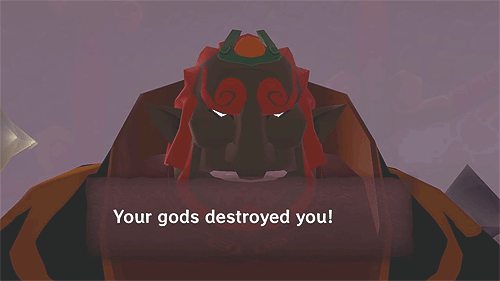
I think there’s something subtle and a little heartbreaking about the fact that no matter what Ganondorf does, the gerudos always end up dying out. His yearning for Hyrule, its gentler wind and the Triforce blessing its lands always costs him the kingdom that he does have already.
Now, does he care? A lot of people would argue that he doesn’t, that he used them like pawns for his own ambition and saw them as servants more-so than sisters, and I wouldn’t be surprised if it was Nintendo’s official opinion, but… One very powerful thing about most of Ganondorf’s incarnations (focusing on the human ones) is that he never seems to reject his cultural heritage. They could have gone for him wearing more kingly hylian stuff given the whole underlying theme of envy and pride surrounding his character, but never once does he try to look more hylian, beyond the ear situation that seems to be tied to the Triforce of Power? Either way: he is gerudo. Several of his outfits reference his mothers, as well as general gerudo patterning and jewelry. His heritage is something he proudly displays, even hundred of years in the future when there is no one left to remember what it means but him. I think it’s a very potent piece of characterization, an arc that crosses over multiple game and says something pretty intense about this character’s fate and his inherent destructiveness over the things he touches –starting with the Triforce, all the way up to his very own body and mind. His mental breakdown by the end of Wind Waker, when the king of Hyrule himself forces him to give up on the thing he sacrificed everything for, takes a new kind of weight with the whole picture taken into account.
(not to excuse genocide or general egomania-fueled madness and violence, but one thing doesn’t mean the other isn’t also relevant)
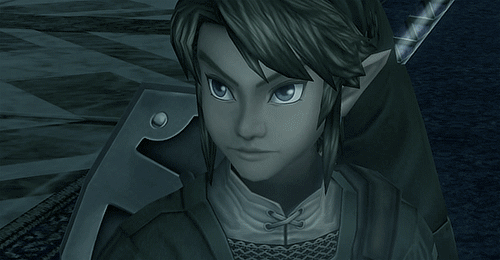
Regardless of whether this is a tragedy for Ganondorf as their uhh complete failure of a king, honestly, it is undeniably a tragedy for the gerudos themselves: a once-in-a-lifetime joyful event turned into a never-ending nightmare from which there seems to be no escape, their legacy now condemned to fade to black, leaving nothing behind but a demon boar forever laying ruin upon the world.
One may say I’m taking on the bleakest explication for the gerudos’ absence when there could be others. It’s true! Perhaps the gerudos are just chilling off-screen, completely fine, not interested in whatever is happening in the kingdom nearby and their disaster child having yet another temper tantrum about not being the Goddesses’ favorite boy. It’s possible! But regardless, what little elements we do possess as players doesn’t seem to support this, even if it remains possible –and regardless of actual gerudo lives, gerudo culture is definitively a goner in every single timeline.
Even if they did survive... Hyrule still won its unification war.
(I won’t mention Skyward Sword as they are not really a thing there, except for a butterfly that seems to suggest the Gerudo Province was a thing before the gerudo people –I don’t know what to do with this honestly– and the whole Groose situation, which, I’m not sure what to make of either beyond the fact that he may have gotten cursed by opposing Demise? And then went on to start the gerudo tribe, which ended up being an all-women group for some reason? Maybe? It’s not confirmed? I feel like it’s more of a fun tidbit than a central piece of the gerudo puzzle, so I’ll leave it there like I would a cool rock I brought back from a walk and that I don’t know where to put in my house)
Then, Breath of the Wild happened and changed things.
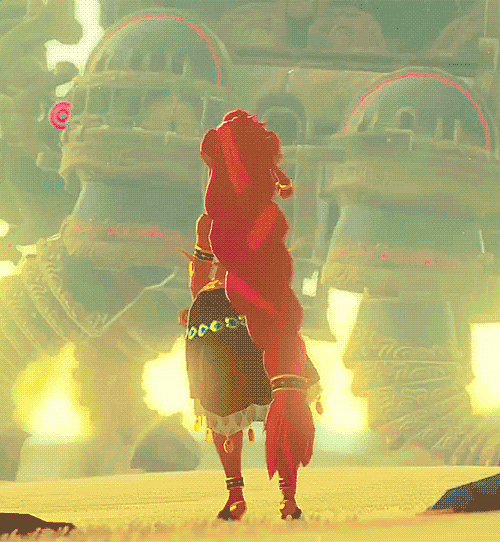
BREATH OF THE WILD
(Additional short note, but: while I won’t mention Four Swords Adventure, since it’s a weird one that almost nobody has played and severely messes with the Timeline, we kind of see the beginnings of what is about to happen in Breath of the Wild in this game –gerudos coming back without much explanation, then distancing themselves from Ganondorf to become friends with hylians because he was too hungry for power and now they are nice and have good reputation because they are our friendsss)
I was actually so happy to learn gerudos were making a comeback in a mainline Zelda game, and this got me more excited about Breath of the Wild than basically anything else the game involved. And getting to explore the Desert once again, meeting this new batch of impossibly tall buff girls, getting more about their language and their culture, Riju and the rest of the little girls are adorable, the grandmas are so cool, the sand seals??? sign me the fuck up??? And above it all, hanging around Gerudo Town at night and feeling as warm and cozy as little me liked to imagine how freeing it would feel, to stay there and watch the desert behind the safety of their walls in OoT… This was great. I loved it.
It was a huge compensation for the criticism I’m about to make, but did leave me with… questions regarding how their culture was going to be handled moving forward.
I’ll start with something small yet deeply revelatory, then work my way from there.
So... gerudos�� ears are pointy now.
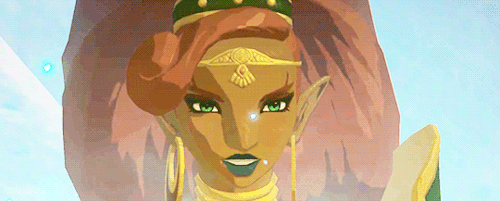
This is pretty significant. Lore-wise, it’s been said that the elongated ears of hylians are there so they can better hear the voices of the gods. It’s considered a sign of holiness in-universe. There's a bunch of really thoughtful analysis on tumblr over that whole Ganondorf ear situation, which is a mess but also very interesting, but the short answer is: I think the absence of pointy ears was a clear design choice to originally signify them as Less Good. Even when Ganondorf gets pointier ears, they never get as long as hylians’. Worth noting: not every non-gerudo character has pointy ears: gorons, zoras and ritos (among others) do not possess this trait, and there are even some humans that have regular rounded ears in the series –though they always seem to be of lesser relevance, if not downright peasants in Twilight Princess. Pointy ears always tended to implied a strict hierarchy in the series: basically, the more pointy, the more Protagonist you become.
(also their eyes becoming green instead of the traditional yellow/golden, which looks more wicked and demonic --and cooler also tbh)
The pointy ears imply two things. From within the game, this could be interpreted in two ways: either that gerudos… converted, for a lack of a better term, and are now considered holy through their worship of the Golden Goddesses and/or Hylia, or that their mingling with hylians through tens of thousands of years had them acquiring this trait out of sheer genetic override (though they have kept their mostly-women birth rates, their big nose, darker skin –for the most part– and red hair). Probably a healthy mixture of both. Design-wise, it signifies something quite simple to the player: they are on hylians’ side now. They are good guys. We can trust them, even if they still have a little spice in them. They aligned themselves with us and against Ganon in all of its manifestations (even if he’s but an angry ghastly pig being parasitic to everything it touches in this iteration). They are on the side of Good, definitively, and will fight evil by our side.
On that note, I think it’s worth bringing out another major change from their initial iteration, which is their overt friendship with Hyrule as a whole, and with the Royal Family in particular. Despite not allowing any voe inside their walls (we’ll come back to this), their relationship with hylians is pretty neat. They have booming trade roads, travel and meet with the rest of the cultures, and are fierce enemies with the Yiga clan, who are renowned for being huge Calamity Ganon supporters. The tables certainly have turned. I want to bring out, in particular, Urbosa’s friendship with the queen and her role as the cool aunt taking care of Zelda and protecting her from evil (to be noted: I am not familiar with Age of Calamity so if I’m mischaracterizing her in any way, please let me know). The gerudo sense of sisterhood has been extended to the royals they used to fight against. I would go on and say the cultures peacefully coexist, but I think that what we’re looking at here is a case of vassal behavior, just like we used to have from zoras (in the non-Fallen Timelines) and gorons. This is a huge departure from gerudos being openly rejecting of Hylian culture in their initial iteration, and something that is worth returning to later.

Okay. Now it’s time to mention the weird obsession BotW gerudos have with romance. I didn’t take notice of my issues with their writing until I realized how prevalent of a theme that was. Now, the reason given for gerudos to refuse entry to males (of every race) has much more to do with preventing young gerudos to make mistakes than anything else, and is actively being put into question by the younger generations –which would make sense. But the amount of NPCs that either lament their lack of match, talk about their husbands (because they marry now apparently) or are invested in romance, and a very limited understanding of romance at that (heterosexual, closed, etc), makes for much more of the population that I initially expected. There’s no mention of what’s going on with their males, if there are new males being born and either exiled or abandoned, or if Ganondorf being technically still alive have have cut them off male heirs. Either way: no more kings, only girlbosses chiefs.
To have the gerudos so interconnected with Hyrule, not only through trade but through extremely coded romance where they have to make themselves palatable to a future male partner and enforce fidelity, was… a choice. The extremely brief and skippable mention of gerudos sometimes going to Castle Town in search for boyfriends in OoT became half of their personality traits in this game. We went from a race that was fiercely independent and mocking of the unworthy men who tried to mingle with them, to… this. Now I’m not saying some of the sidequests aren’t cute, or that I didn’t like the wedding, or that the grandma near the abandoned statue of Hylia (so she was worshipped at some point) clocking us and talking about her love life wasn’t one of my favorite gerudo conversations. I’m saying that the vibes have definitively changed. For the better? I’m not sure.
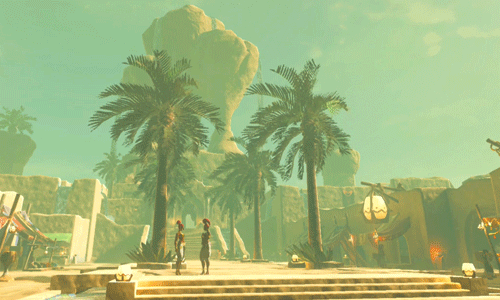
I once stumbled upon an article that said that Breath of the Wild gerudos were a huge improvement compared to their original introduction, because they were no longer presented as evil and hostile thieves groveling at the boot of a single man, but as a full culture allied with the protagonist and actively involved in the story, while still getting their Cool Girl Badass moment (again can’t find it anymore, I’ll link it if I stumble upon it again). I see where this comes from, but I honestly can’t help but consider it a reading that assumes something pretty major (though through no fault of their own, as the games tend to hammer this down as hard as they can), and that being hylians as the unquestioned anchor of Good.
Which, in spite of what the games want me to believe, I… feel uncomfortable taking at face value.
To me, regarding how gerudos are being incorporated in that goodie narrative, this is kind of a case of surface-level feminism trumping over colonialist/imperialist concerns. It becomes more important to perform the aesthetics of being cool and friendly and independent than scratching at any deeper problem that would risk making people uncomfortable. This is kind of Green Skin Ganon all over again: oh wait, isn’t it a little icky to have the evil bad guy being brown while faced by the most aryan-looking ass heroes of all time? Okay, then let’s take the brown guy and make his skin green so we don’t have to feel bad anymore that the conflict has racial undertones!! Solved!! There’s nothing questionable about changing a PoC's features to make it more monstrous and less human, right?
To me, it’s kind of the coward option: instead of accepting the messy reality those initial choices created (and their interesting nuances if taken at face value), let’s just… rewrite the PoC culture’s history to make it feel less uncomfortable for the white heroes. In many ways, it is an extension of what hylians have always done: scrubbing the weird and messy things about the past and shoving them deep down into the spooky well and far into the desert prison and away in alternate hellish dimensions, and then make up a very simple story where they get to feel good about themselves –except this time, it’s the fabric of the games, the literal reality, bending backward to make it happen. Which, in my opinion, makes it much worse than before. Now, there’s no conversation. The fabric of reality is changing their own history so that there is nothing to discuss anymore. Ganondorf was always evil incarnate. He never had any point. It was always 100% his own fault, his own hubris, his own fated wickedness. He was always demonic (and green, very important –having a flashback to people on twitter accusing artists restoring the TotK green skin to the original brown of wanting to make Ganondorf black, and like….. how do I put it gently…..)
And, above all else: gerudo are to distance themselves from his legacy so they can stay in the club of the Good and Just and Holy.
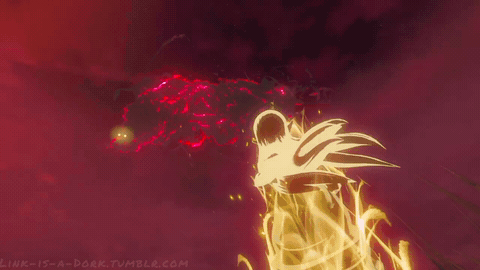
Because here’s the messy thing: as much as I love seeing the gerudos again in Breath of the Wild and as much I love for them to have survived the Era of Myth (??? somehow ???), this… kind of changes Ganondorf’s character arc. No longer do we have the story of a king who wanted more, either for his people, for himself or both, and led his culture to its destruction in his search for absolute Power, while remaining ironically incapable of maintaining what little he already had. This starts from him kneeling to the king of Hyrule in OoT and leads to the deluge, Arbiter’s Ground, his own mothers dying for the sake of his failed resurrection. Breath of the Wild changes this: now, the gerudo were apparently fine without him? They apparently did their own thing and became suddenly and inexplicably disconnected from his actions? I know it’s kind of implied they side with hylians at the end of OoT, but it’s honestly never really explored why they would cheer for the death of their king while never seeming to resent him before except for Nabooru –there are mentions of brainwashing for those who resist him (as well as “other groups in the desert”, tho they are never mentioned again), but it’s hardly a proper plot point for the majority of the tribe, aaaand they still die by Wind Waker in the Adult Timeline, in spite of their potential alliegance…
(again, this shift towards submitting to Hyrule actually started with Four Swords Adventure, getting crisper with each iteration)
There used to be this polite blur regarding Ganondorf’s relationship to them, how much he used them and how much he acted in their name (with arguments for both sides), and I think this messy and debatable question mark was one of the most compelling aspects of his character. Gerudos rejecting their relationship at a near-cosmic, reality-bending level, removes a huge layer of complexity to both parties… all for the benefit of making hylians come out cleaner out of this whole exchange, their moral grayness barely a whisper in the distance.
I’ll kind of go on the record and say that I suspect the addition of Demise to the canon to serve a similar purpose (at least in part): if Ganondorf becomes but the manifestation of a demonic curse, and is no longer an extremely messy character brimming with agency and drive, forcing the heavens to reckon with said agency in a way he was never meant to access, born from a complex set of circumstances from which we clearly get only a limited and biased perspective, then it becomes extremely clear that he’s a Bad in a way that isn’t worth exploring further. Even if he does have some points, he is a Bad. It’s what matters most. Not to say I even hate what this angle can bring to the table or that I want him to become Good (I don’t –I’ll talk more about why I dislike most takes on him being a helpless victim to the curse), but once again, who benefits from adding another Unquestionned Baddie to the equation to rest upon? Not him, and not the gerudos, that’s for sure.
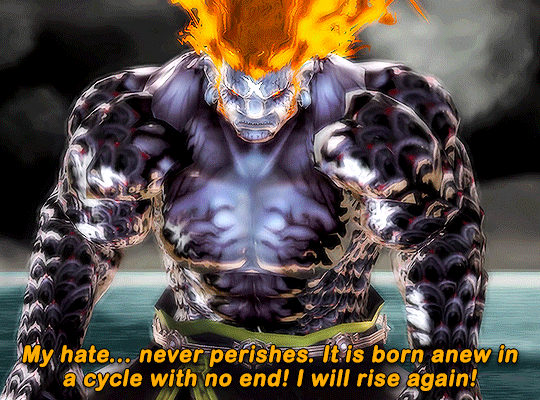
So. Why did I, me, personally, like the gerudos in the first place?
Beyond the inherent coolness factor of their culture and the fascinating mysteries of what is merely suggested, I think… I think I loved gerudos because we were obvious outsiders. Because their rejection of Hylian culture was so sharp and extreme, their value system so different, and their writing, their religion, their relationship to power and hierarchy and worth wanted nothing to do with hylians. They didn’t need hylians, beyond them having potential resources to steal. In fact, the threat of hylians influencing their culture was such that the entry to the Fortress was forbidden to everyone (I don’t think men were ever singled out, by the way, even though they are mocked relentlessly). I think there was something inherently hopeful about this semi-matriarchy resisting the outside world, and especially its notions of what girls were meant to be –it was 1998, and every other girl character in OoT, besides Impa and Sheik that?? is another can of worms entirely, is either helpless or someone to save. For them to reject this narrow vision of femininity was, in my opinion, much more radical than what we got in BotW. Less nuanced, more problematic perhaps? But also much more powerful. Gerudo Valley is home, not to a town, but a Fortress.
Hylians were worth being resisted.
In Breath of the Wild, their refusal to let men enter their town is kind of boiled down to a fading tradition over-focused on romance, a meek little game of chase. Their entire goal seems to be finding a hylian to settle down with. Say what you will about the single man and the many girls (never explored and completely open-ended in its implications, btw), but at least it wasn’t… that. At least it opened the way for different ways for people to exist and imagine culture and civilization, outside of the heterosexual couple, the christian-infused patriarchy and its trickling down implications. What I want to say is: let my girls tell hylians they ain’t shit!! That they aren’t the end all be all of reality! This is what made gerudos so compelling in the first place! Where is that bite now? Where is that self-definition?
It’s gone, because hylians need to be Good. So we tee-hee at the creep running laps around the town, we disguise ourselves to breach their trust and infiltrate their town (though there is nuance to be had there, gender be complicated etc), we watch them pine after shitty dudes and take classes to become the perfect approachable woman and make love soups with ?? strange ingredients honestly, and we witness them get very friendly with the Royal Family they used to conspire against, dying to protect the princess against the manifestation of their ancient king reduced to a raving puddle of Bad Boar.
Hyrule, unified against him.
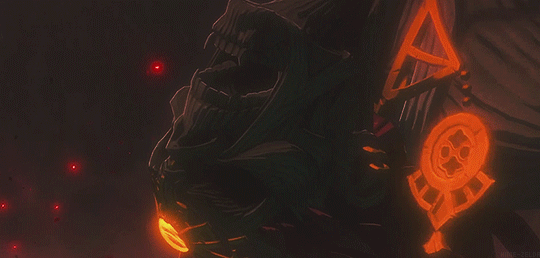
TEARS OF THE KINGDOM
For posterity’s sake: this post was made before the game was released. I’ll probably update my thoughts on a separate thing later on.
I don’t think gerudos allying with the hylians and burying their own legends about Ganondorf as deeply underground as they can until it blows up in their face is a bad setup at all. It’s actually pretty juicy, and there’s a ton of fascinating stuff that could happen here –even some involving gerudos taking a firm stand against him while still reconnecting with their past and the choices they made once. This is my hope with the title of the game: Tears of the Kingdoms. Let’s examine them all, account for the damage, and decide how we move forward from there with the full knowledge of where we come from.
What I am afraid of (and I already made posts about that) is the scenario where gerudos rallying against Ganondorf, which I expect will forcefully try to take back his place as their king, is used for cheap feminist points that completely fail to examine, well. Everything mentioned above. Where reality bends itself out of the way of the Goddesses, and hylians’ responsibility in any of this mess, so that everything bad is 100% Ganon’s fault and so he must be cast aside and torn away from the Cool Gerudo Girls and this is 100% justified and deserved because we are Independent Women Who Take No Shit from No Men (unless they are the king of Hyrule or any random hylian they wish to marry apparently).
I’ll say this here because it’s been burning my mouth every time I see discourse about Ganondorf and the gerudo: gerudos declared him as their king. To make a really bad comparison that I dislike: he didn’t run around to assemble girls and make a cult around himself, he was born with the cult already formed around him (and it’s not a cult, it’s just a different mode of governance –hylians also revere the Royal Family like gods, don’t they?). This heavily changes the dynamics at play. Not to remove any agency from him to do a little invasion about it, but chances are the ancestors to BotW’s gerudos fully expected him to behave in this way, at least to a degree –in OoT you see very plainly that they value physical prowess, feats of thievery, witchcraft and general violence. It’s more complicated than him being a Bad and making the poor helpless women go along with the plan uwu –even taking the brainwashing into account, AND Koume and Kotake counting as gerudos too, even if they might not be not fully innocent in shaping the culture and the man himself. If manipulation and forced servitude is the explanation given, I’ll be genuinely mad –because, once more, all the nuance and messiness would be flattened for the sake of making Ganondorf Bad and the gerudo Good (= on hylians’ side).
It bears to be said: I think feminism stances that require, not to criticize (which is fair), but to fully dehumanize and bestialize men of color to make any sense are uhhh bad, and it's worth questionning who they end up serving in the end.
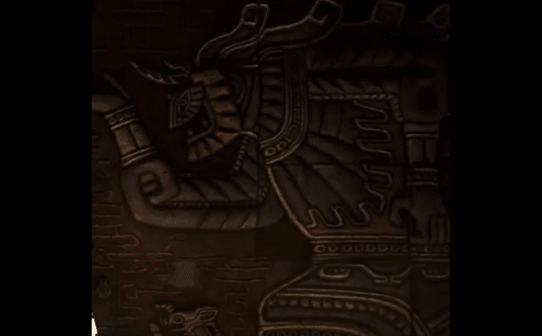
The flip side of this would be to make Ganondorf a poor little meow meow that was secretly controlled by the evil Demise all along, and... I’ll be real. I really don’t think it solves our problem at all. It might even make it worse.
My problem with how gerudos have been handled thus far, being mostly connected to how they behave in relation to hylians Good, is that they’ve been systematically defanged not to threaten the status quo as much as they used to. I think it’s pretty clear why I’m not a fan of Ganondorf being a mere victim of cosmic circumstances; I have a post that goes more in depth about this, but to simplify: my man has legitimate grievances. To make him a mere puppet to Evil Incarnate would, to me, be just another attempt to erase the despotism of the Goddesses, the unjust hierarchy of the world, what hylians have historically done to the races they were in conflict with (looking at the Yiga for the most recent example…)
I’m not saying his fight is clean or even legitimate, that he isn't driven by his own sense of self-importance above anything else, or that he should win (he has no plan beyond domination and victory, that's not a future). But I think there’s something really important about having someone being willing to fully consume himself and everything around him for the simple fact that someone should resist the order of the world. Even if that makes him a heartless, cruel, and egomaniac demon-pig. Even if there’s no Hyrule left to rule. Even if his own people despise him, or are long gone and forgotten.
Is it a little heart-wrenching? Uhh yes to me yes most definitively. This is why Wind Waker Ganondorf hits so hard, and remains (I think) his favorite entry in the series so far. But… I still find this fate of eternal resistance more resonant and empowered, and far less grim, than if Hyrule’s lore absorbs his hatred and rage, gives it to another entity that would be Badder (= more opposed to hylians and the goddesses), and scrubs it off anything icky and uncomfortable, rendering it completely domesticated and non-threatening to hylian domination; rubbed of his skin color, of his complexity, of his own emotions, even made... kind of sexy now, in the same way his sisters have been made before him? I am very, very afraid of him being turned from furious and an unapologetic subject in his own legend to a "redeemed" (according to whom??) and palatable object in somebody else’s, that you now end up having to… save from himself.
Again, I want to trust that Tears of the Kingdom can walk that line and preserve everything sharp and contrasting and profound and thrilling about this fascinating setup. I don’t expect a philosophy course, this is a game for children –but it doesn’t mean Nintendo didn’t do an astounding job with similar setups in the past. Again, I’ll invoke the Wind Waker conflict, but Twilight Princess did a lot of great things as well (Zant’s speech, if you can get past the weird stretches and stumping and NNHYAAAs, is pretty fantastic) –and the subtle writing of Majora’s Mask is also proof enough this series can be complex without being impermeable.
So this is where my hope lies. Not really with BotW’s writing, which, I’m sorry to say, but I found to be below what the series has done in the past (I have no problem with the setup and how the story is explored, I think it was a great idea, but wasn’t ever sold on the actual writing the way I may have been with previous titles –it felt… very tropey to me overall, with a couple of highlights). But Nintendo has shown to know how to write compelling stories for children that know where to sprinkle its darkness and how to preserve its hope, and this is this side I’m relying on for this delicate storyline moving forward.
And now? Now… I suppose we wait and see.
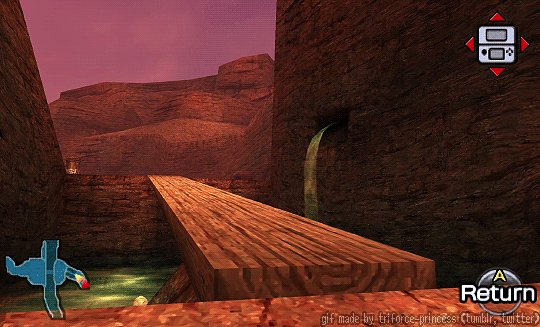
(thank you for reading my impossibly long essay what the actual hell, at least I got it all out of my system, see you in part 2 for when TotK comes out I suppose aaa)
#sorry for my rambling on your old post#I did see this post when you first posted it#but it was at a time when I told myself I was done engaging with this topic#you know well how tiring it can be considering the sort of people this fandom has#but then ya know people started saying dumber shit so here I am back at it again as you all can tell#which! is quite telling!#if the large majority of the fandom still views the gerudo as they *do*#considering how front and center botw/totk is now#then it tells me that they didn't defang the Gerudo at all#they just made them more *accessible*#ganonthots
955 notes
·
View notes
Photo

Congratulations Emily! You have been accepted as The Lover! (FC: Lily James)
Our competition for The Lovers came to two amazing apps, but Emily, your application absolutely blew us away. Celeste is beautifully developed - from her name to her history - but still with so much room for growth and exploration, and she’s just absolutely perfect for this role! Make sure to follow the checklist and send us your account within 48 hours! WELCOME TO THE ARCANA RING, EMILY. WE HOPE YOU ENJOY YOUR STAY.
Name: Emily
Pronouns: She/her
Age: 21
In Character Information
Skeleton Applying for: The Lovers.
The two figures in the Lovers card are blessed and protected by the angel in the clouds above them. Angels, in general, represent the refinement of earthly desires. This angel, in particular, is Raphael, the angel of Air. One of the associations of Air is communication, necessary for a healthy relationship. The purple cloak on the angel represents royalty, a symbol of how important communication is. The sun shines brightly over the couple, bringing warmth and security. The earth at their feet is green and fertile and suggests life and happiness. The snake in the fruit-laden tree behind the woman suggests the story of Adam and Eve, the fall of humanity from grace, and the temptations of the world. The snake is also a symbol of the senses. The flames behind the man represent the flames of passion, indicating the primary concern of the man. There are twelve flames, representing the twelve zodiac signs, the symbol of time and eternity. The man looks to the woman, who looks to the angel, indicating the path of the conscious to the subconscious to the super-conscious, or from physical desire to emotional needs to spiritual concerns. The mountain is a phallic symbol, while the water is a feminine symbol, indicating balance between the two. (X)
Faceclaim: Lily James, Margot Robbie
Character’s Full Name: Celeste Lucie Fontaine
CELESTE: This French name is based on the Latin caelestis meaning ‘heavenly’. She’s often been compared to an Angel, a creature floating down from the stars, shining just as bright. Someone who occasionally appears to be not of this world – or at least, not fading into the background of the one she does inhabit – it is wholly appropriate that Celeste’s middle name speaks to the skies up above and all the weight that they carry. Although she laughs when people call her an Angel or ask when she fell from heaven (she’s always had a weakness for cheesy, corny chat up lines), such a comparison is enough to make her heart dance. It was her clients who first began the trend, but it has quickly spread to the mob members she calls family – who perceive her to be a slip of relative innocence among their ranks and someone to be cherished. Made pure by her desires (to love and be loved in return, to have sanctuary, to be happy and blessed and beautiful) she truly represents a heavenly creature. But Celeste doesn’t know to be wary. She doesn’t know to be afraid. She doesn’t know that even Angels can fall.
LUCIE: In French the meaning of the name Lucie is: Light; illumination. There’s a serenity to Celeste, a brightness that refuses to be dimmed – in spite of the darkness’s of her childhood, in rebellion against her endless heartbreaks or the chaos and destruction of the mob that surrounds her. It would be easier, simpler, to become swept up in said darkness’s – to give into the most carnal of desires and become a tragic parody of herself. It takes a certain strength to remain resilient despite that and an even brighter light to keep shining through the seemingly never ending darkness, chaos and destruction. The world can change, circumstances can change – but the most fundamental parts of herself, her desires, dreams and hopes – they remain the same, all fuelled by the same internal light that shines bright enough for anyone. There have been too many times in her life when Celeste was forced to become her own beacon of hope, her own lighthouse calling out to the ships in the bay. From a young age, she learnt to find the light inside of herself – and believed in it wholeheartedly, never giving up, for lack of other options. But, likewise, she has become that light for everyone else – or whatever they have needed from her, shifting and giving a little into their desires. Hardship might make it dim, but it will never fade, not completely. These days, in the solace in the arms of a soul mate, it shines brighter than ever.
Age: Twenty-six
Gender and Sexuality: Cis-gender female (She/her pronouns) + Pansexual/Panromantic.
To Celeste, sex and gender are fluid and without meaning, fading in significance when held in comparison to the person themselves. She has loved people who identify as men and those who identify as women – and those who don’t see themselves on the spectrum at all. Labels are such silly, limiting, affairs – and she has no time for them. Besides, labels do not matter as much as what is inside of a person – the measure of them, the way that they cherish her and whether they whisper I love you as they tangle between the sheets. It’s for this reason that Celeste firmly identifies as pansexual/panromantic – and does so with pride.
Character Bio:
(Tw: Abuse, Neglect, Prostitution)
PAST:
Some children are counted as blessings, cherished from their first breath and held close to their parent’s chests. Some children fulfil legacies, or fill an aching hole. And some, a tragic few, are born without a second thought, hardly wanted and forced aside as if they are a burden of their own making. Without being given a choice, Celeste was assigned the second category. Even the circumstances of her birth hinted at the struggle to come. She was born early, learning to howl through fragile lungs, limbs as delicate as a lambs as they shook for attention. She was to learn that such a kindness would not be easily granted – and would have to be sought out. In the beginning, there was only one parent (whose repeated absences would convince Celeste she had no parents), a mother who had no right to the title, who carried a child she had little love for and who paid far more attention to a throng of boyfriends, neither of which treated her very nicely either. Brought home and raised in a poky little flat in central Lyon, Celeste soon learnt that there was very little love to be had. It was an absence that caused agony and one that would define the years to come.
Growing up, she hungered for three things – affection, attention and escape. The first two were hard to come by – and would defy her grasp for many years to come. But the third was remarkably easy to find, among the pages of books at the Public Library. In the hours after school and on weekends when she was old enough to remember the route, Celeste could be found tucked into the corner between two shelves, fingers tracing the outlines of the beautiful princesses and repeating their stories under her breath. Their lives appeared to follow a journey similar to her own. They faced adversity as a child – Snow White was tormented by a wicked Step-mother, Cinderella’s father died, leaving her in the clutches of evil and Rapunzel was locked high in a tower. Then, they escaped. They found happiness – and they found it in the arms of a Prince. Young and impressionable, with nothing else to base her fantasies on, Celeste quickly became enamoured with the idea of a fairy tale ending. She imagined herself to be Snow White and brought to life by true loves kiss, to be Rapunzel and torn down from her prison by the love of her life and to find a glass slipper that fitted. Internalising fantasies, they quickly became a sort of reality, a safe place to go to in the midst of chaos – whenever her apartment was shook by shouting or the doors slammed enough to shake the entire building.
Her life became fixated on the idea of something better. From the time she could go to school, she noticed the gaps in her own life and those of her peers. They had parents, in various shapes and forms, who loved them. They had big houses with multiple bedrooms and a well-stocked fridge. They were warm and safe and loved. Was it so wrong for her to want that for herself? Sat hunched over drawings, she imagined a palace of her own – a big house with an endless wardrobe (sat in tatted second-hand clothes with holes in, was it really so horrible for her to dream of gilded possessions?) – and someone to come home to her. They would sweep her up unto their arms and caress her until she was safe, worshipping her as Goddess. Some days, those ambitions were the only things that kept her alive – nourishing her until the dream figure found a face.
As a child she had been too tall and a little too slender. But as the girl became a woman, so she grew to fit her features – blossoming into a natural beauty. Suddenly, people began to notice her. Eyes would follow her when she walked across a room. People began to leave notes in her locker. She was asked to dances. They saw her. An invisible girl was beginning to come to life. Believing that her beauty was her ticket out of a life of desperation and poverty, she began to fixate on the ideals – waking up at five AM to get ready before school, pilfering through unsuspecting friends closets to sell their hand-me-downs, even occasionally shoplifting for make-up. It was vanity – but for the purest of intentions – and Celeste remained proud of her actions. If this was what it took to get her out of this life, then she would do it all.
Eventually, her work paid off. The first person who truly noticed her was an older boy at school, eighteen to her tender sixteen. At first, he was charming. He carried her books to class, gave her a corsage at prom – even held her as she fell asleep in his arms. And when she asked him to take care of her, he said he always would. Besotted and eager to impress, Celeste quickly shaped herself in his desired image – believing that if she succeeded, he would never hurt her. One day, about four months after they had started dating, he asked her if they could have sex. She told him that she loved him – and asked if he felt the same. When he nodded, she inclined her head too, giving him permission. The sex had been sweet – but it was his words she fixated on the most. He loves you. He loves you. You won’t have to be alone now. Unfortunately, people lie. Three days later, he told her that they were done. He was the first to break her heart – but he wouldn’t be the last. In the aftermath, some people might have turned bitter, or darkened their heart against the possibility of love. But Celeste, more resilient than even she knew, was determined not to let him define her.
The next three followed in a similar suit – she gave her heart to people who were reckless with it. Perhaps that was why she failed to see a future in Lyon – and that when she graduated, given control of her freedom for the first time in her life – she left, bound for Paris. In her imagination, Paris was the city of romance, the place where dreams came true and the most beautiful city in the world. If she couldn’t make it there, then there would be nowhere else to go. Taking a low-paid job as a waitress at high-value and exclusive events, she felt more like Cinderella than ever before. Life was not kind to the poor pretty girl. It gave her a tiny, rat-infested, apartment. And unlike in the fairy tales, they did not befriend her. But, like Cinderella, she found her break. It was a Tuesday night – and she had been working for hours. But somehow, she caught the attention of an older woman, dripped in jewels, who liked to collect treasures of her own. Approaching her at the end of her shift, she offered a cheek in greeting – and a generous offer. Come and live with me. You won’t ever want for anything. They were the words she had been waiting a lifetime to hear. Greedy for a different lifestyle – and throwing caution to the wind – she accepted.
After that, her life became unrecognisable. She immediately moved into the woman’s apartment and was showered with indulgent fabrics and jewels, all for the very small price of indulging her as an intimate girlfriend. It was every fantasy she had ever imagined. It was her happily ever after. In time, what was initially a business arrangement began to feel very much like true love and she learnt to blind herself to the inequalities in their relationship. In time, any boundaries began to erode, as Celeste learnt everything there was to know about the woman she called her soul-mate. Her wealth came from a number of places – some unsavoury. There is a ring called the Arcana, she had said, three years into their tryst, I would like you very much to meet them.
Agreeing, Celeste was the beautiful girl on her arm the night she was taken to L’Empire Rogue. It was there that she first became inducted into the ring – meeting the Empress for the first time. Beautiful, but deadly, Celeste was immediately intrigued – drawn towards the world she promised. Given a tour around L’Empire Rogue, Lucienne surprised her by offering her a job, curling her lip and saying she could be a stripper or an escort, whichever she preferred. Staunchly loyal towards her benefactor, Celeste shook her head – Merci, but I could not possibly leave my love. Lucienne had smiled, the sort that inspires, as well as terrifies you. Pointing down towards the main floor, Celeste blinked back tears as she watched her beloved being taken back to a private room by a beautiful girl. And in that moment, her heart broke for the fourth time. Comforting her, Lucienne said that she didn’t have to rely on one person, that she could have an entire family – filled with people who cherished her. Clients will fall at your feet, they will worship you. Nothing bad can ever happen to you here. Seeing little other option – and truly wishing to buy into the life she painted with her words – Celeste agreed.
The next night, there was a new girl in the club – one with the eyes of the world upon her. Where other workers changed their names and became Star, Bunny and Rose, Celeste opted to keep her own, looking for honesty from the clients who would pay for her pleasures. There are those who would look down upon her and her profession, but for Celeste, the entire experience was one of empowerment. The gaze of desire in their eyes sparked a new sense of life inside of her. They ravished her with their tongue and bodies. They attended to her, touching her intimately, as if they would never let go. She was being worshipped. Each night, she would fall a little more in love with them. Within a few months, Celeste had climbed up the ranks and become of Lucienne’s top earning girls – and a personal favourite. Whilst people, usually her fellow workers, assume it is ambition and greed that drives her, they hit far from the mark. Although she would never deny how good being at the top feels, it isn’t cutthroat ambition that drove her journey there – but the constant need for approval. Having never been the best at anything, never particularly sharp with intellect, or loved the way she deserved to be (heart and soul), it felt good to be at the top, to know there was nowhere further to go. The Queen at the top of her power, she won’t allow anyone to knock her down.
In time, what began as a profession quickly became a life – and one worth living. True to her word, Lucienne introduced Celeste to the rest of the Arcana Ring. Initially nervous (fearful that they might despise her, judge her or simply hate her), Celeste quickly found her place within their ranks – and distant strangers became treasured friends – and then family. It was the only sort she had ever known, a different sort of love than one to be found between the sheets, but one just as pure. They all came from different walks of life, with different talents, expectations and goals, but were drawn together by a common thread. Throwing herself head first into the relationships she cultivated with them, they each hold a treasured place in her heart, never to be torn out or replaced. She grew to cherish the monthly dinners at the estate and in time, the life she had chosen for herself. Finally, she thought, I am safe. There were smiles. And there was laughter. But to be truly happy, she knew she needed one more thing.
Love.
It was a lesson that she had failed to learn time and time again. But a heart that bled as heavily as hers could never truly be stilled. In the arms of every lover she took, she was always searching for something more. She longed for a relationship that lasted longer than a night, for someone who took the time to get to know her, that would cherish her the way she believed she deserved. Was it so much to ask? She would think, tears rolling down her cheek. But, although she left a piece of herself in each client she took, she failed to find the one – and it was all so temporary. Some were ashamed of her. Some objected to the crime ring she counted herself a part of. In the end, she hadn’t figured out that the person she was looking for had been under her nose the entire time. It was late one night – and Remy was a surprise guest. Celeste had begged the last one to stay, swearing they could make it work, but had been left alone anyway. It was Remy who had caught her, with that damned smile of theirs. No one can understand this life. Not like you or I. I would never be ashamed of you. Celeste had raised her eyes to meet theirs – and found herself falling.
The rest, as they say, is history.
PRESENT:
Happiness has been a long time coming – but finally, it has fallen within Celeste’s grip, never to be surrendered. You cannot call her a Queen, but she’s something of a Princess within the Arcana Ring, adored by the masses, occupying the top rung at L’Empire Rouge and blushing with the flush of true love. They say that beauty fades, but Celeste’s is blossoming. She is magnificent – and she knows it. Vanity and pride are ugly, but they look appealing splashed across her features. Blissfully ignorant to the stirrings of war at her side, her focus is consumed wholly by the woman who occupies her bed and holds her as she falls asleep – a loyalty that no one – and nothing – could ever break, which is probably why no one has even tried. Although currently blind to the rumblings of change around her, she cannot remain ignorant forever and soon, war will find a place at her doorstep. Should that happen, no one would even need to question her stance – for her heart will always win. Despite that, the Arcana Ring is her family – and she would never wish to see them fractured. To Celeste, sticking together – and uniting behind Remy – is the best course of action. In the midst of war, she would be the white flag, a little naïve as she advocates for peace and reconciliation. But should fighting break out, should she be forced to gear up and smudge paint across her cheeks, she knows what side she’s on.
PERSONALITY:
So much of who Celeste is has been shaped by her past experiences. She is very much a product of her childhood and the legacies that it has carved out upon her body. She strives for safety and security, investing so much of who she is in people and putting stock in them – because those are the things that were denied to her as a child, so have become what she craves. It’s a little naïve of her at times – but is very much an active choice – fulfilling the promises she made to herself when she was just a little girl – and didn’t know any better. Despite that, Celeste is a myriad of complications. She is something of an idealistic dreamer, the girl who believes in soulmates and happy endings, who wants nothing more than to impress everyone, under pressure from their expectations, but possesses something of a hidden edge too – a desire to remain on top, as well as being a little vain – craving the comfort of beautiful material goods. And yet, ultimately, those flaws stem from her childhood experiences, from the denial of things and forever desiring denied attention and affection. Ultimately, Celeste is someone who wants the simplest pleasures in life, a family to adore, to love and be loved in return. And in that sense, she is the most human of us all.
Extra:
Mockblog: X
Personality Analysis: X
Anything Else: Nope!
2 notes
·
View notes
Photo
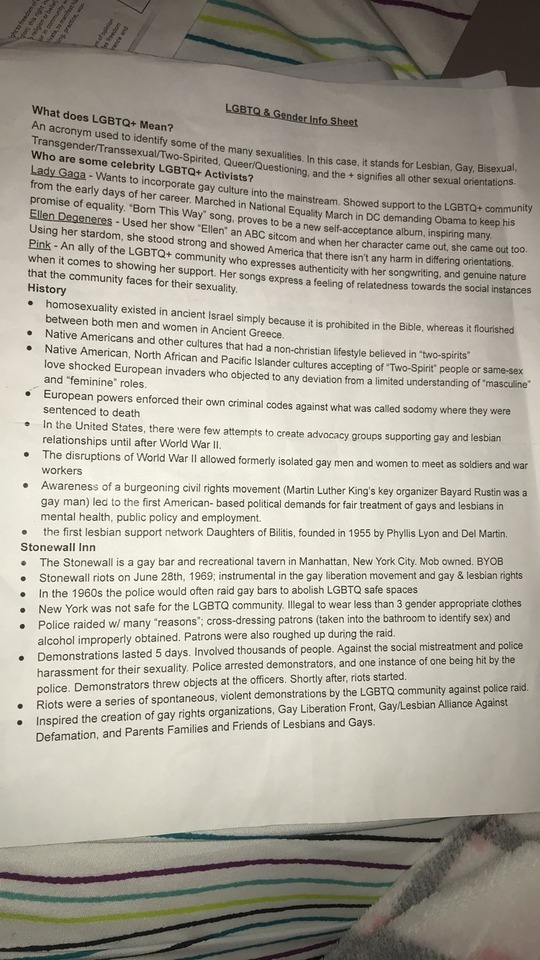
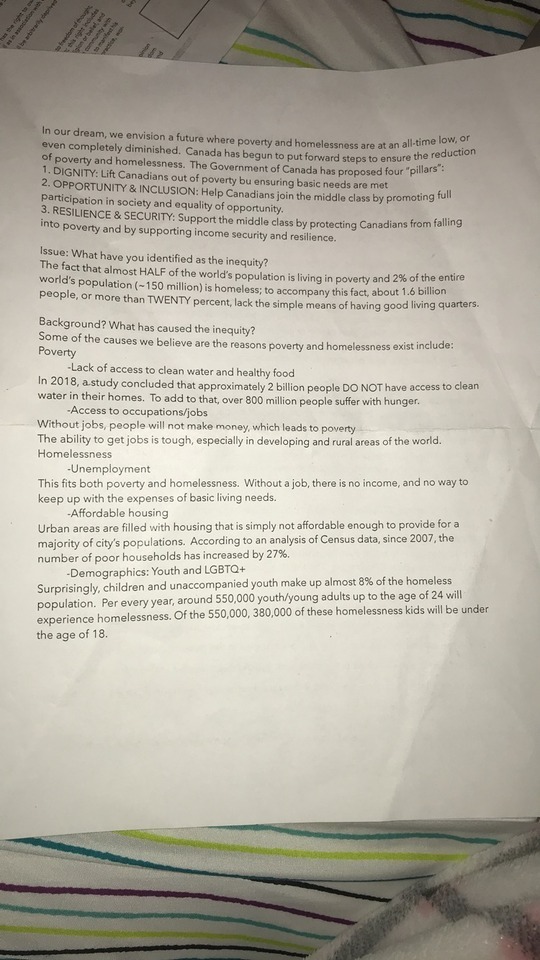
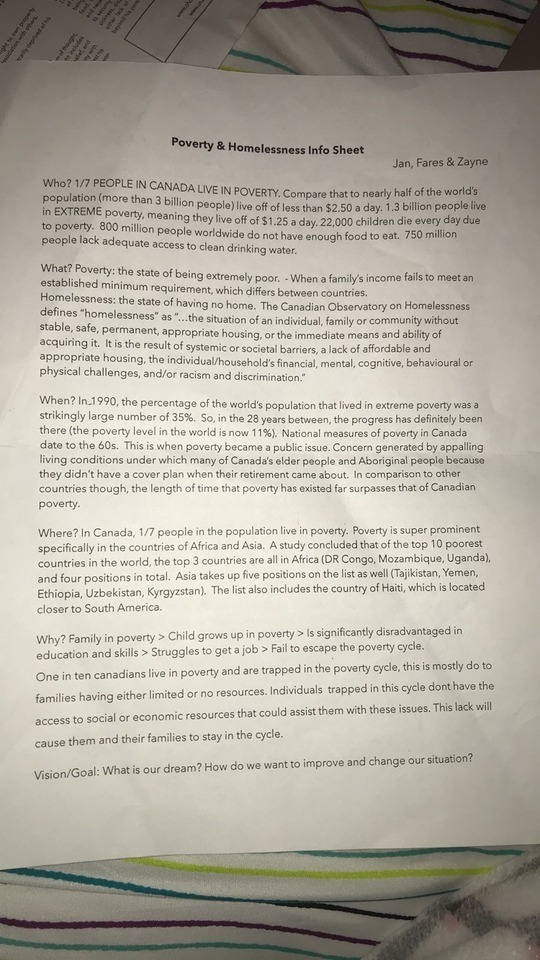
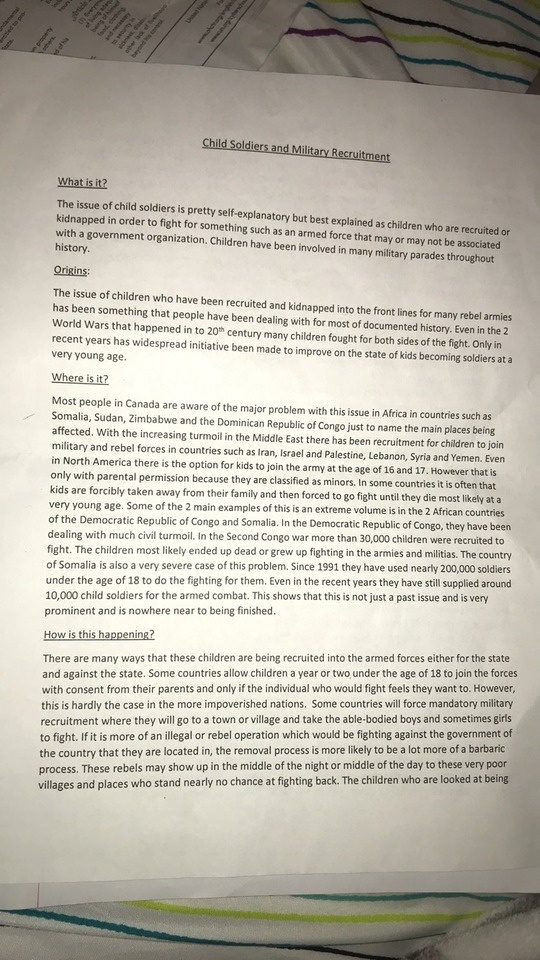
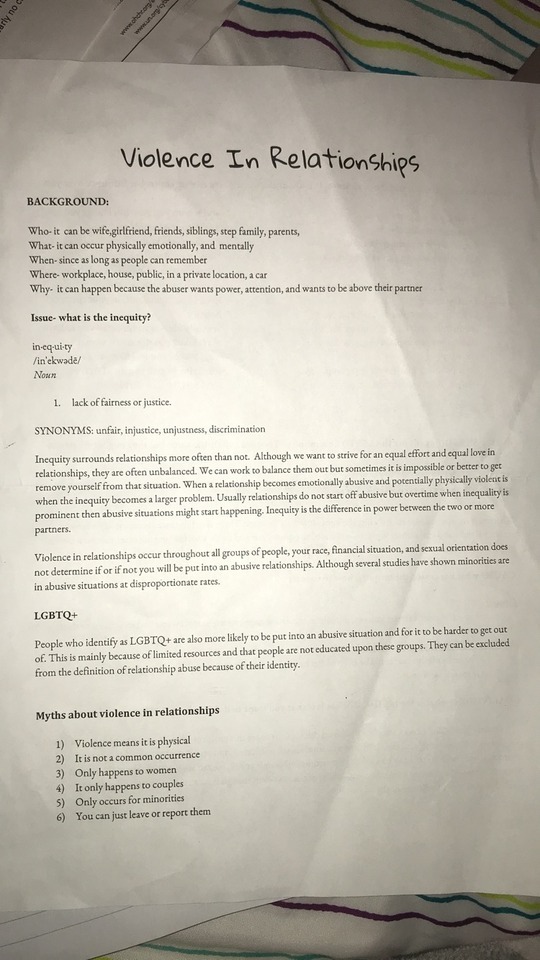
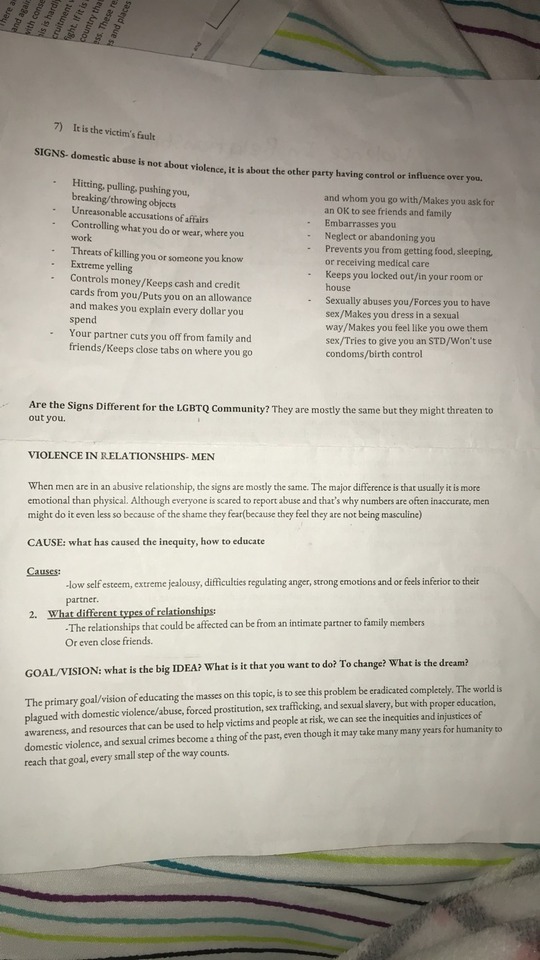
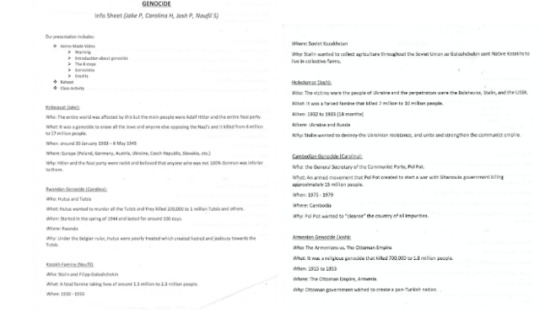
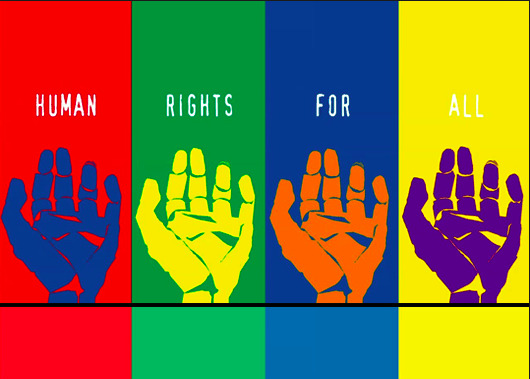
Info sheet Racism and Discrimination
Who?: Racism and discrimination are endured by a vast variety of people. Racism in itself is heavily felt by dark skinned people all around the world. Due to subconscious teachings of black being inferior to white; light is good, dark is evil, etc., with an increase in darkness comes a higher prejudice against said person. When we mend discrimination with racism, we can see a crystal clear relationship. From passed up job opportunities to being denied service, black people secomb to most racial discrimination by far. This is not to leave out all minority race groups, especially indigenous people. They are sometimes viewed as drug addicts with no work ethic, this leading into not being thought of in opportunities that could better their quality of life.
Women are subjected to discrimination far too much in our day and age. Many of us do it subconsciously, whether it be feeling more comfortable with a male server, electrician, construction worker, etc. Women are seen to be less capable of certain tasks than men.
Some other people who experience discrimination are those of the LGBT+ community. Certain job titles still are not viewed as an appropriate place to express one’s homosexuality. In many occasions gay couples will be denied service from businesses due to strictly the fact that the consumers are gay.
Where?: Racism occurs all over the world, because of the social normality, for things such as skin colour, ethnicity, and religion. We are mainly discussing racism within America and Canada. America and Canada’s racist status quo remains unique and alarmingly oppressive. This racism is entirely based on skin-colour and one ideal image. One’s nationality is immaterial. In terms of discrimination, discrimination also happens all over the world and on a greater scale. Discriminatory traditions, policies, ideas, practices and laws exist in many countries, some having discrimination towards different groups more than other countries would. In some places, controversial attempts such as quotas have been used to benefit those who are believed to be current or past victims of discrimination
When?: Nobody knows when racism was birthed. In many cultures, dark skin is viewed to coordinate with poorness with the ideology that if you worked outside, you were poor and tanned. A spotlight shown on the cruelty of racism during the slave trade in the 17th century. Black people were used as slaves due to solely their skin colour. This ignited the flame of white power. Once slavery was claimed illegal in the late 1800’s that mindset didn’t die. Segregation showed the epitome of discrimination. Jobs were not given, seats were not sat in, schools were not attended to, etc., simply because of a colour.
With many protests for equality throughout the 18th and 19th century including our modern “Black Lives Matter” movement, segregation was banned and minds were slowly but surely opening. However the view of black people of less than was not fully stripped. Plantations turned to prisons and beatings turned into “necessary action”. Police brutality formed such a movement. Today we can still witness discrimination against minority groups even though many rules and regulations have been put in place, there is still the fight for equal views and opportunities.
What?: Racism: the belief of some races being better than others and the actions resulting from that belief. Racism is not just saying offensive comments to one of a different cultural background but offensive to their community as a whole. Canada supposedly to be a very multicultural country is exposed to more occurences of racism than expected.
Discrimination: prejudicial treatment of different categories of people or things, especially around race, age or sex. Some might think racism and discrimination are the same thing, but in reality they are not. Discrimination targets an individual’s gender, sexual orientation age as well as race. Majority of people are exposed to discrimination such as groups of teenagers, women, LGBTQ and those of colour.
Why?: Racism and discrimination are seen as very common topics around the world, making them immune to some, but there is a reason why it happens. Racism has been brought from generation to generation, especially during the time when the europeans were colonizing different countries of different ethnic backgrounds. Not only is it a form of hate from old times but a stereotype of a certain race. Older generations bring their dislike and bias towards a certain or multiple races, and younger generations adapt to it. Stereotypes are similar in a way except the racism is not coming from a person you know but a large group of people who have thoughts about the certain race. For example saying asians can’t drive, but just because a person has been in a bad situation with one, doesn’t mean they are all bad drivers. Discrimination is similar in the sense of stereotyping a large group or having an opinion about them because everyone thinks its right. For example, some people think women should not work and just stay at home to take care of the children. Because of people being so influenced by what others of society think, racism and discrimination seems common in a way. Although there is no way to stop racism and discrimination since it will always be around especially with older generations, there is a way to educate the younger generations about the misuse of it. There is a large misuse of the word ‘racist’ and ‘discriminate’’ because some people do not know what the real definition of racism and discrimination is. Educating, and not labelling everything as racism and discrimination could be ways to have the terms not be so common.
Vision/Goal: The first step to demolishing racism and discrimination as a whole is to educate ourselves about this issue and to know the kind of effect that it can have on our society. Generations need to be raised and taught how to treat people equally and correctly or else we will never be able to grow and change this world-wide issue. Another reason is that we need to stop viewing each other as greater or superior to one another. The hope is that by doing things such as these, all people can live without fear, and instead with hope and love, however this can only be achieved as a society and not individuals. It will take a great amount of effort to demolish or at best decrease racism and discrimination from our society,
Background/issue: - what has caused the inequity? What have you identified as the inequity? Social inequality is linked to racial inequality, gender inequality, and wealth inequality. The way people behave socially, through racist or sexist practices and other forms of discrimination, tends to trickle down and affect the opportunities and wealth individuals can generate for themselves. Today in Canada we have legal protection for victims of discrimination and a constitutional guarantee of equality rights for all. Employees cannot be treated differently because of age – unless they are under 19, in which case different standards apply. Remember, the BC Human Rights Code does not permit employers to discriminate against employees based on personal characteristics – like age, race, religion or gender and other personal characteristics.
So, for example: Employers cannot refuse to hire you because of where you come from. Employers cannot fire you because you are pregnant. Employers cannot force you to retire because of your age. Employers cannot harass you sexually.
Human rights
Poverty
Poverty is the deprivation of common necessities such as food, clothing, shelter, and safe drinking water, all of which determine our quality of life. It may also include the lack of access to opportunities such a s education and employment which aid the escape from poverty and/or allow one to enjoy the respect of fellow citizens
Although one of their group members was missing, i found this presentation to be very educational and wee executed. I am happy to know that the world’s population living in extreme poverty has gone down by twenty-four percent in the last twenty-eight years. It disgusts me to find out that one seventh of Canada is living in poverty. It simply doesn’t make sense to me. We are labeled as a first world country yet we have over fourteen percent of our population living in conditions equivalent to those of third world countries. There is no excuse for Canada to allow Canadians to be limited to resources; a major factor in why so many are trapped in the poverty cycle.
LGBTQ
LGBTQ = Lesbian, gay , bisexual, Transgendered, Twin spirited, Queer, and Questioning
The LGBTQ is an initialism referring collectively to lesbian, gay, bisexual, and transgender/transsexual people. In use since the 1990’s. the term lgbtq is an adoption of the initialism lab which itself started replacing the phase gay community which many within LGBT communities felt did not represent accurately all those to which it referred.
This presentation was executed very well. I personally am always extra attentive when Leon is presenting, as he always delivers his presentations with confidence and ensures to audience is not bored, which appreciated. Something that stuck with me from this presentation is that police officers used to raid gay bars simply to ensure that they knew nowhere was safe for them. To be living in constant fear only due to one’s sexuality is a state that I cannot fathom.
This topic is also what is wrote my human rights essay about:
LGBTQ+
By: Madison Neal
Love is light. A saying rolled off the tongues of those blanketed buy its warmth, those who love fearlessly and freely, utterly and entirely welcomed to express it. But there is another flame of love, it’s as well, warm and bright, all though it’s punishing to reach and is guarded; bordered buy police badges and twisted metaphors, laws prohibiting anyone to bask in its beauty and mobs set to attack those who seek to. This love is denied to the LGBTQ+ community. During the 60’s and 70’s, more and more people were expressing their love for the same sex in a wave that unsettled and angered many civilians. Gay people had no safe space to love one another. Police often raided gay bars to ensure those inside knew that being who they truly were would never be okay. Gay marriage was illegal in Canada until July 20, 2005, and the U.S. until June 26, 2015. Even then it was frowned upon by a plethora of close minded people. Gay couples have been and still are denied service from businesses and are mistreated in society.
The light of self love is also stripped from the category of transgender/two-spirited people. There has been reports of a transgender woman being shot down by a gunman in a car driving by, simply for appearing to be transgender. They have been and recently under Trump, still are denied to serve their country in the United States. These inequities endured by the community are only a sliver of the inhumane deeds excerpted on those in it. people are placed in conversion camps and cleansing therapy to this day, attempting to “fix” people whom are in no way broken, but rather different.
A conception of wrongness associated with this topic is not a natural trait, it is taught by those who were also brainwashed at a young age to give love a shape that only fits between a man and a woman. Lack of exposure is the route to closed minds across the globe. As with anything, when something is never brought to light we cannot perceive it as normal, and to add on top of the weight of “abnormality” to such affection, it has been is deemed inappropriate in the past to execute in public, and has been despised when done in front of children. We can view this in separate generations. As protests and fights for equality by generations before the Millenials were held, much attention was brought to precisely how unjust the laws were surrounding the way of life of the LGBTQ+ community. Because of these protests and exposure Millennials grew up with a great decrease of censorship of the community and what kindness and care it obtained. This would birth people whom would use the likes of social media to debate and discuss with those still set in a different viewpoint. This paved the way for the next generation (Generation Z) to be flooded with exposure of the topic. Today we see television shows based around gay culture and multiple gay characters with many stories of all too real hurdles forced by a group of people to overcome, this includes shows for children; a notable step in progress given the utmost disgust portrayed around allowing children to be educated on any factor of the topic. This generation is growing up with LGBTQ+ role models whom they can confide in by merely clicking on a youtube video. The magic of the internet has been a crucial tool. With its gift just clicks away, my generation is forming in this world as one who is known to convey gay and transgender as anything but a choice. We can see transgender kids as young as five years of age embracing who they truly are. The origin of injustice was and will never be a feeling, it is and has always been lack of exposure accompanied by insulating purely negative notions to the people.
My vision for the future of the LGBTQ+ community is that we can mould and raise people in our society and eventually all over the globe to be educated on the topic. Ignorance is born from withholding of knowledge. With minds filled with exposure of “gay culture” and all the bright unique traits of the community, I yearn for no individual to ever have a shred of fear when it comes to being oneself. I as a Catholic am very accepting and interactive with many members of the community, as many Christians overall are. However, I am aware of the closed of extreme religionists of Christianity do not feel the same way, due to what the bible says. I wish to change their way of thinking and see those people be enlightened on the fact that the bible is filled with metaphors. There are heart-wrenching stories of people begging God not to make them gay, when in reality it is how God formed them and I believe that if god loves all of his children, than he will accept the very ones that he created.
The constant lingering of danger due to one’s sexuality is that of atrocious. I envision a society where those of the community would feel safe regardless of any location, and that little boys and girls are not told to “man up” or “act like a lady”. Children’s brains are not at a stage of development equipped to completely know what they identify as. It is these social stereotypes that are another burden for those who come to the acceptation later in life that whom they were presenting to the world is but what they were told to be. I want to improve the quality of life for people who are only expressing what they feel in bars or at home, for them to be not just legally but socially free to show affection in public without crude stares or judgements. To witness schools implicate sexual education on both heterosexual and homosexual relationships, the children of the world are the future of it, and if we want to change the future it must be made a priority to train them to be accepting and understanding the complexity of all forms of love, as it is all in the end the same.
Racism and Discrimination
Racism is the belief that race is the primary determinant of human traits and capacities and that racial differences produce and inherent superiority of a particular race. People with racist beliefs might hate certain groups of people according to their racial groups
In the case of institutional racism, certain racial groups may be denied rights or benefits, or get preferential treatment.
Discrimination is any action or behaviour that causes a person to be treated in an unfair, hurtful and negative way. People may discriminate because they have a prejudice against someone or because they have a stereotype of that person.
People may discriminate without any intention to hurt someone but someone may still be hurt and disadvantaged by another person’s actions and behaviour. (racism is a belief, a set of values, an attitude — a group of assumptions that view and construct in a negative way a group of people used on their racial background.
My group presented on the topic of racism and discrimination, I feel our presentation went smoothly and i feel that the audience responded well to our multiple interviews of people’s encounters with racism and discrimination. Something i found interesting while doing research on this topic is that in many countries in Asia, lighter skin represents wealth, because if you work outside it means you have an underpaying job. SO if one is tan, it is a tell that they work outside and are therefor poor
Child Soldiers and Military Recruitment
War is reciprocal and violent application of force between hostile political entities aimed are bringing about a desired political end-state via armed conflict.
The military use of children takes three distinct forms: children can take direct part in hostilities (child soldiers), or they can be used in support roles such as porters, spies, messengers, look puts, and sexual slaves; or they can be used for political advantage either as human shields or in propaganda.
I admired this presentation for its projection and detail in knowledge. I also enjoyed the kahoot at the end. I found this to be a good strategy; letting us know there would be a kahoot at the end, and that the winner would earn a prize, because it kept the class engaged the entire time. Something that left me with a pit in my stomach is when the presenters explained how in some countries, military goes into villages and/or towns and forcefully strip able-bodied boys and sometimes girls away from everything they know to battle. I couldn’t imagine waking up one morning thinking my day is going to pan out as usual, only to be taken away from my family and friends and thrown into extreme danger. It is inhumane and revolting.
Violence in Relationships
Violence - is any act that results in or is likely to result in, physical, sexual, and psychological harm or suffering, including threats of such acts and coercion or arbitrary deprivation of liberty, whether in public or private life.
This presentation was well done and knowledge on the subject I had not known before was brought to light. One thing that truly stood out to me wa the topic of the relations of the LGBTQ community and violence in relationships. Before this presentation i always thought of violence in relationships to me more often a male abuser towards a female, and sometimes a female abuser towards a male. It had never occured to me that the community are more likely to be subjected to an abusive situation in a relationship. I learned that this was due limited resources and lack of education upon these groups. The LGBTQ community is often excluded from the definition of relationship abuse because of their identity and lack of exposure.
Genocide
Genocide is the elimination of an entire group of people classified by race, religion, etc.
This groups presentation was also well executed. I found it interesting and surprising to hear of the multiple genocides that have taken place over the years, as far as my knowledge had reached before the presentation, there had only been two, i now know there were virtually triple that which were addressed in the presentation.
Extra notes:
Gender
Gender comprises a range of differences between men and women, extending from the biological to the social.
Biologically, the male gender is defined by reference to the presence of a Y-chromosome, and its absence in the female gender. However, there is debate as tot he extent that the biological difference has or necessitates differences in gender roles in society and on gender identity, which has been defined as “an individual’s self-conception as being male or female, as distinguished from actual biological sex.”
Homelessness
Homelessness is the condition and social category of people who lack housing, because they cannot afford, or are otherwise unable to maintain, regular, safe, and adequate shelter
0 notes
Text
We are not for the world, the world is for us
Defining cool has been a quintessential cultural quest for decades: everyone wants to be cool. But what exactly is cool? What does it mean to be cool? Do rebelliousness, toughness and thrill-seeking make up the essence of coolness? Can James Dean and Faye Donaway represent the common sense of cool? Personally, I think no one could give a definite accurate definition of cool. However, although we cannot define what is cool, we can still find the common qualities of cool people and explore how these people define cool.
Friedrich Nietzsche, the famous German philosopher, in my opinion is one of the coolest human beings. But why people like Nietzsche? Compared to Plato, Kant, or Marx, Nietzsche absolutely is not a simple name which is easy to remember. However, Nietzsche was the first people who bravely said: "God is dead". To understand god is dead, the first thing we need to understand is that it is not a bad thing to "kill" god because the truth is human beings do not really need god as long as we can be masters of ourselves. Moreover, Nietzsche's ultimate purpose is to criticize the social norms at that time through proposing the idea god is dead. As a lonely and romantic traveler, Nietzsche is rebellious—he declares god is dead and he fights against all the traditional values. For Nietzsche, human beings should rise above our circumstances and difficulties to embrace whatever hardship comes. In his book "beyond good and evil", Nietzsche leads people to break all the norms and jump out of comfortable zones. Being our own masters means we need to admit the importance of our own wills and desires, at the same time emphasizing individualism. The moment that all the rebellious ideas appear in our minds, we are supposed to have someone to be our mentor to the way, and Nietzsche is exactly this kind of person. For cool people, there are always some characteristics can make them stand out—something doesn't conform to social norms of the time. What makes Bonnie cool? Her nonchalant and chill expression and her gun makes her different with these girls who wear flower dress. What makes James Dean cool? His locomotive leather jacket and Harley makes him stand out in those decent men in suits and ties. What makes Angelina Jolie cool? When other little girls dream to be ballet dancers, she wants to be a vampire. And her rebellious madness and boldness, her brave attitude in face of disease, and her brilliance of motherhood in face of children all make her an extraordinary woman. What makes Kurt Cobain cool? He'd rather be himself and be detested by others than changing himself to please other people.
What coincide with Nietzsche's ideas is the definition of cool given by Pountain and Robbins's book Cool Rules: cool is an oppositional attitude adopted by individuals or small groups to express defiance to authority. In other words, cool people are those who refuse to be sheep and they pursue everything they want through struggling. However, from Cool Rules, being cool forms part of risky series of negotiations about becoming an individual while still being accepted into a group, which means being cool doesn't equal to being weird. There should be an obvious limit between cool and weird. But what is the limit? To answer this question, I choose to look at the three requirements of being cool mentioned in Cool Rules—narcissism, ironic detachment, and hedonism. Firstly, narcissism means an exaggerated admiration for oneself, which gives rise to the feeling that the world revolves around you and shares your mood. Basically, this is a mood that I am not for the world, but the world is for me. Love yourself and follow your heart is always the first step of being cool. We should appreciate our parents giving birth to us but we are not supposed to live as they wish, and what we need to do is to figure out who we are and who we want to be, facing our desires and pursing dreams by all means. Never look back and never regret. Although some people consider narcissism as a sin of vanity, I personally think we should have an aggressive attitude toward our spirit of narcissism. Being aggressive when our pursuits and dreams are denigrated, and there's nothing wrong with being ambitious if at the same time we can be responsible for our behaviors.
Secondly, ironic detachment is a stratagem for concealing one's feelings by suggesting their opposite. Philosophers divide irony into several types, but cool irony is a combination of different types of irony, making it a verbal weapon effective in aggression. For me, ironic detachment is the state of not being fully part of a specific scene due to that appreciation of life. Some people consider the world as a huge vanity fair and they want to constantly compete with others to win what they want. But cool people don't care. They don't want what the majority dying to get and they just want to follow their hearts. They are able to accept themselves and accept others, and they can also accept their own environment. In both the good and the adversity, they will accept everything and struggle to improve the situation. It takes a price to grow up and to be cool because growth always involves adventures, temptations and unknown things, and we should constantly try new experiences and expand our personal limits.
Last but not the least, hedonism is the simplest but also the most complicated cool quality. Literally, hedonism means we should simply seek pleasure and enjoy everything. However, cool hedonism is always driven by some ambitious motivations. This is a kind of pleasure from physical gratification, the excitement of competition or the charm of anticipated success. From my point of view, the pleasure that is too easy to get is not real pleasure. I think that hedonism refers to inner enjoyment, but not pure material pleasure. Some people think that the pursuit of material needs all kinds of abilities, but the pursuit of inner enjoyment is not that demanding. However, the pursuit of inner enjoyment is the hardest. Inner enjoyment is a combination. Things like food, money, sex are pleasure, at the same time reading, listening to music, watching movies, thinking, and debating are also pleasure. We need to combine different pleasures together to understand the true meaning of hedonism.
In addition to the three characteristics above, cool people also need to be complicated, which means many of their features are contradictory. In W.E.B Dubois's opinion, being black is a constant sense of having "two warring ideals" within you, and a desire to merge your "double self into a better true self." For Dubois, he calls this kind of feeling "double-consciousness". Why someone cannot be an African and an American at the same time? But also because of this kind of double-consciousness, there appeared so many extraordinary African-American artists. Like Drake, Kanye, Beyoncé, they use their lyrics to show their rebellion to the society. When I was a little girl, my cool mom told me that never let anyone label me and stop me being who I want to be. She said girls can be aggressive and ambitious rather than being kind and sweet, and she taught me that she would rather choose to reflect on the fault she made rather than regret that she didn't even choose and try. As an Asian girl, I am constantly labeled but at the same time try my best to remove all the labels and fight against the stereotype people have about "basic Asian girls". The fundamentals of being cool is to rebel through struggling: struggle to find who I am; struggle to find my own way; struggle to rebel against all the people who try to be "good" to me; struggle to fight against the weaknesses of human nature; struggle to do some seemingly meaningless and boring things to find the meaning of life; and struggle to recognize the essence of life but still passionately love life.
Nietzsche didn't write "beyond god and evil" for cool; Yoko Ono didn't create her art works for cool; Isadora Duncan didn't dance for cool; Jay-Z didn't sing for cool. Then I realized that this kind of cool struggling should be meaningless and subconscious. Our ultimate purpose of struggling is not to simply be cool, but is to be a sober, thoughtful and independent human being instead of being a sheep—we need to follow our own rules instead of parents' rules, social rules or god's rules. Essentially, having a set of sound, complete and independent value system is the base of cool. Cool can be an image, a way of looking, talking or doing, but more importantly, it is a way of being.
0 notes
Text
We Now Call You President Trump: Do We Have the Right To Be Afraid?
Will Donald J. Trump drain the swamp of its creatures or become one of them?
On January 20th of 1969, Richard Milhous Nixon took his presidential inaugural oath in Washington D.C. to become the 37th President of the United States. At the time before and during Nixon's tumultuous presidency, the nation was embroiled in what was seen by many as a virtually un-winnable overseas conflict in Vietnam. Prior to winning the 1968 election, Nixon had ran once before, but lost to the more beloved and charismatic favorite John F. Kennedy. In his winning 1968 election, Nixon saw that the democrats were split amongst the brass of their own party as to what do in Vietnam and thus ran on a vastly more decisive platform of foreign policy that many citizens believed the United States needed at the time. This boldness in a time of uneasiness secured him the seat of the presidency that year. It all could be boiled down as simply as being certain in times of uncertainty. Nixon's boldness nonetheless sunk us deeper into Vietnam, causing more anti-war protests in the streets, political discontent, and general anti-American rhetoric.
Twelve years later, on January 20th of 1981, Ronald Wilson Reagan officially took office to become the nations 40th president. The actor turned California governor attempted to earn the Republican nomination twice in 1968 and 1976, but failed. In 1969, as governor of California, Ronald Reagan called upon the forces of the nation guard to stomp out the bubbling Vietnam protests all across the UC campuses. As president of the United States of America, Reagan escalated the war on drugs and ushered in what was known as "supply-side economics" or also more popularly known as "Reaganomics". Reagan's war on drugs combined with Reaganomics injected crack cocaine into the black community, and its effects are still being felt to this day.
What taste did the names of these two historic former leaders leave in your mouth? Based purely on reputation alone in the zeitgeist of American culture, those two have the reputation of being villains in the eyes of modernity. My generation doesn't respect these two men, we revile them. I could've quite easily given you the positive things they both have done, but where is the fun in that? Republicans must be painted as evil in our subconscious and democrats as the heroes;we all know this. Republicans are the oppressors of free thought while democrats are the fosterers of brand new ideas that will always save the citizens of the United States. It is without a shadow of a doubt that by the end of Donald J. Trump's bid as the president of the United States, he will also be looked at as a villain, no matter what positivity he brings to the country.
Though it may be impossible to fathom in United States politics, the perfect political system is uniquely non-partisan. Our attachment to our ideals trap us into who we think automatically has our best interest at heart. The closest a voter has to non-partisanship is registering as an independent voter, however even that isn't good enough. The history of humankind has taught us that as a species we NEED villains and opposing tribes. In politics its as evident as ever. The goal of every political thinker, or pseudo intellectual as many people tend to label new-age thought provokers, is to be as objective as possible in the face of political ideologies. To be fluid. The liberals aren't the exalted and righteous saviors of the Republic and Conservatives aren't the death-bringers of it. If the 2016 election has taught us anything it is that there is no good or evil in politics, both have the propensity to be wicked.
Lyndon Baines Johnson was sworn into the office of the presidency on January 20th of 1961 to become the 36th leader of the free world. He took the place of an unjustly assassinated John F. Kennedy, who before his untimely demise was seen as the champion of Civil Rights on Capitol Hill, even going so far as to speak directly with Martin Luther King Jr himself on occasion. With Johnson being a progressive and JFK before his death on the way to making major moves in the realm of Civil Rights, in order to live up to his party promise he made it his mission to get the bill passed. The Civil Rights Act of 1964 was met with ample opposition on Capitol Hill. It's asinine to consider that something as simple as saying that discrimination based upon religion, race, sex, or color should be outlawed was ever fought against with any fervor. But it was fought against. And fought against incredible hard. That is America and her politics though. Perfect? No. Once openly racist and sexist and now, today only inherently racist and sexist? You goddamn right. But as history will tell it, the heroism of liberals got that bill through out of the kindness of their hearts.
May peace be upon the souls of the dead, but the champion of Civil Rights on Capitol Hill, John Fitzgerald Kennedy was a vicious adulterer/womanizer. His sexual escapades puts the acts of Bill Clinton to shame. That side of JFK is often forgotten about as his achievements are praised as opposed to his personality quirks. It was this very man who ordered the FBI wiretapping of MLK's personal phone. A wiretapping that continued through Johnson, and if any, Johnson gets most of the historical ire for. It was Lyndon Baines Johnson who on multiple occasions has been documented speaking toward African Americans and women in a derogatory manner. Lyndon Baines Johnson was a racist in progressives clothing, going as far as even calling the Civil Rights Act of 1964 the "nigger bill" on multiple occasions. Accounts of Lyndon Baines Johnson overt racism and John Fitzgerald Kennedy's sexism can be verified by a simple Google search, however, history would rather frame the democrats as eternal rays of sunshine and not creatures from the same disgusting abysmal lagoon that Conservatives crawled out of. These people aren't our heroes. Any single of us can pick a president in history and do exactly what I've done here. There are plenty of presidents that I could've chosen for this examination. Regardless of the focus, the result would've been the same.
What is it that I am really attempting to convey to you though? What sentiments do I want you to feel? First, I want you all to realize that government and its leaders are amoral creatures. They don't do good for the sake of doing good, nor do they do bad for the sake of it either. Corporations as large as the United States have to do whatever is necessary to keep the business running as well as they can. May it be plunging ourselves deeper into the throughs of war, injecting drugs into neighborhoods, or the securing civil liberties of oppressed peoples, the government will do what it needs to do to sustain itself. By any means necessary. What I am saying to you isn't intended to be anti-government or to be anti-establishment. This is intended to aid you on the journey of being anti-betrayal. So, the question remains: do we have the right to be afraid of Donald Trump? Yes, we do have that right. We should always tread on caution when it comes to our leadership. They should always be placed underneath a microscope no matter what party hey align themselves with. By doing this, we are doing us AND the United States a favor. Hold President Trump accountable for both the blessings and curses he may deliver. The key to democracy is holding our leaders accountable in the present. There is no good side to politics. Nor is there a bad side. There is only politics, which float in a strange amoral middle ground between the two sides which is chalked full of human beings in undeserving positions of power.
We now call you President, Mr. Trump.
I hope you do not add to the swamp.
0 notes